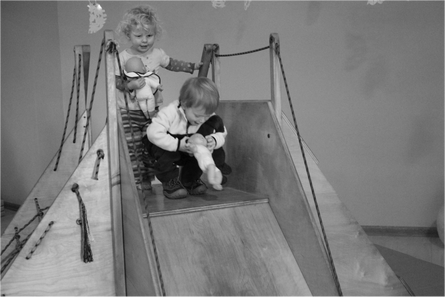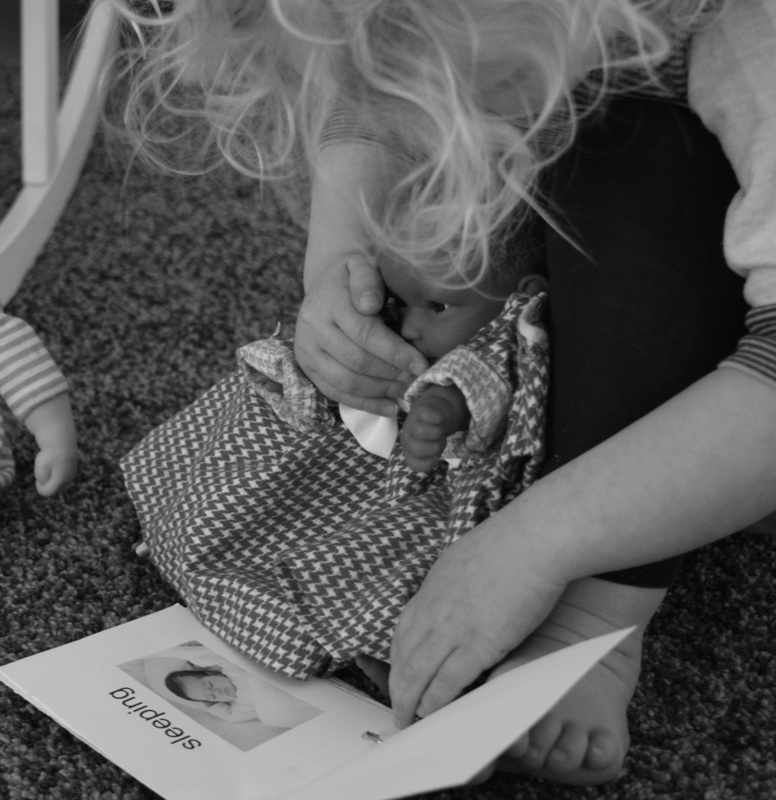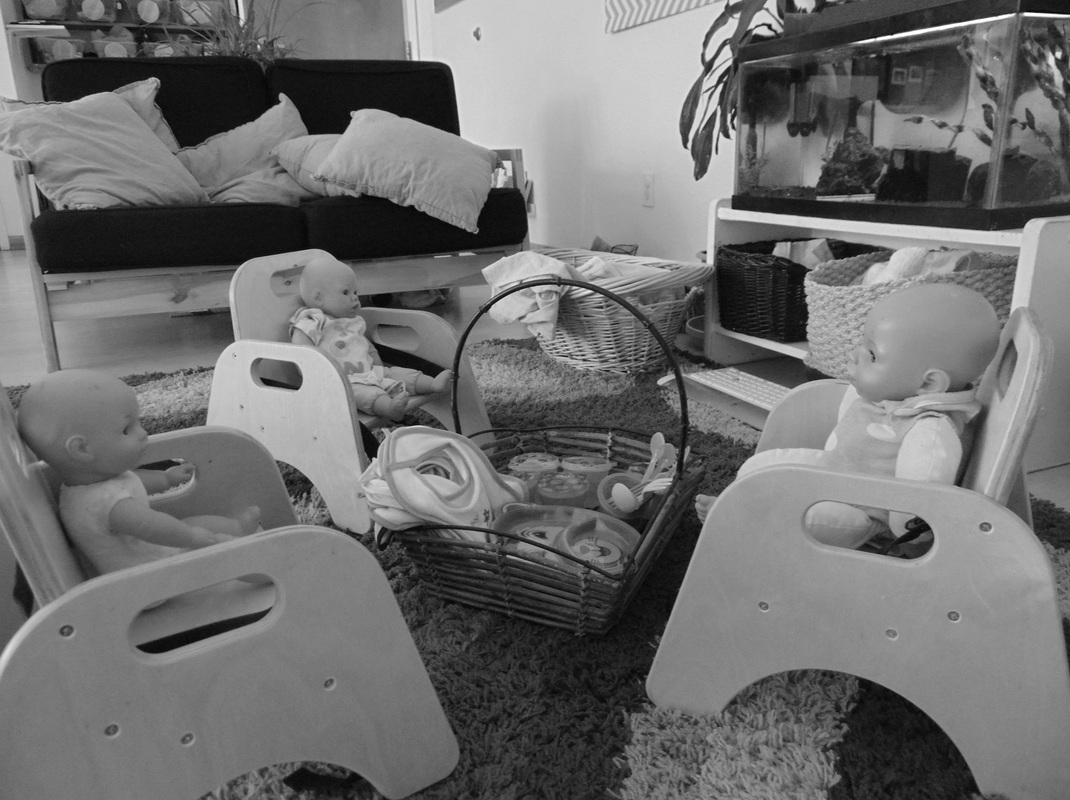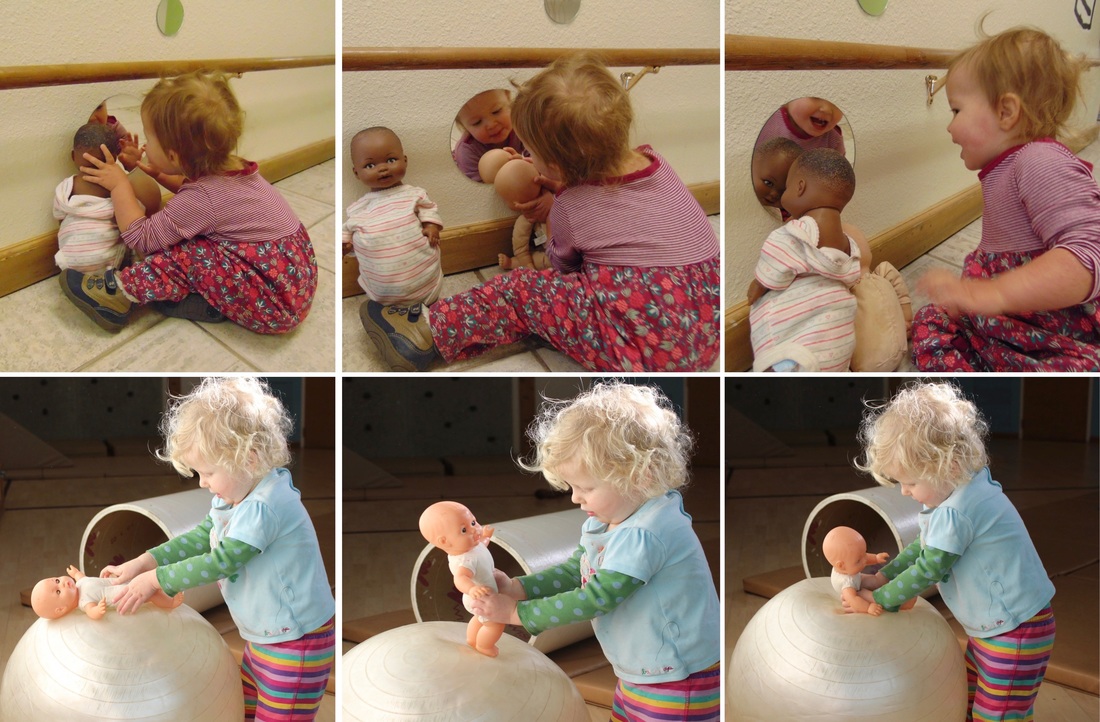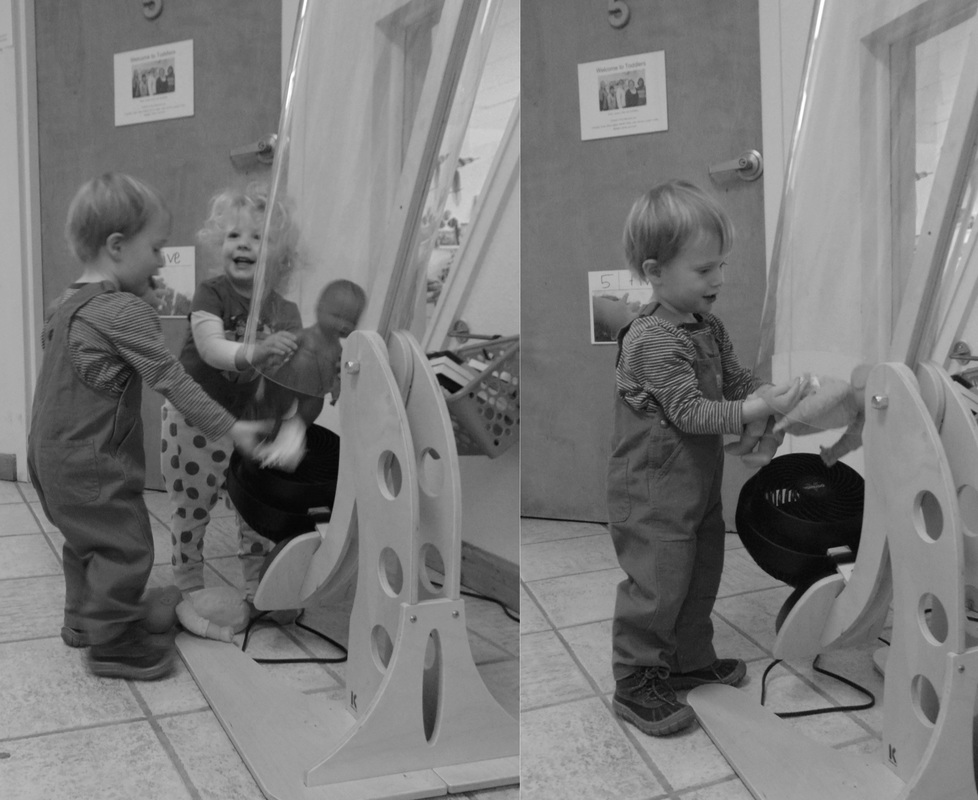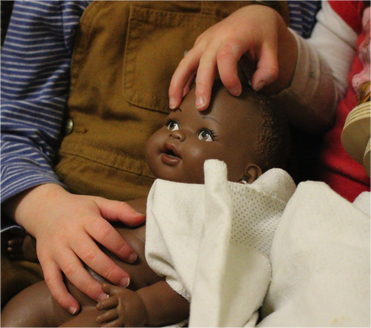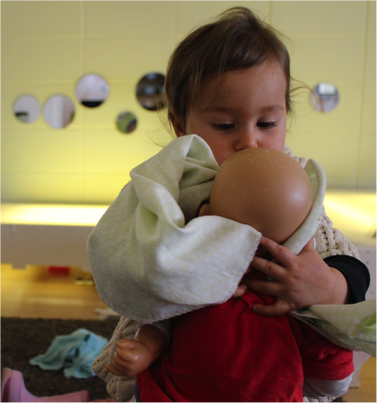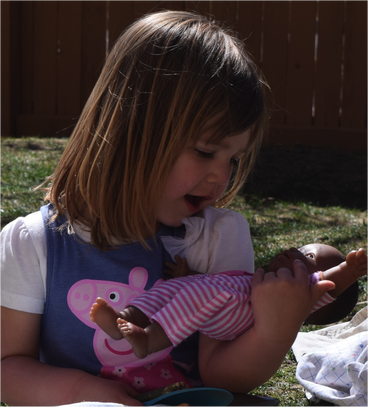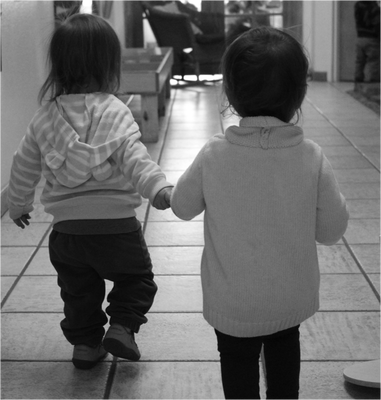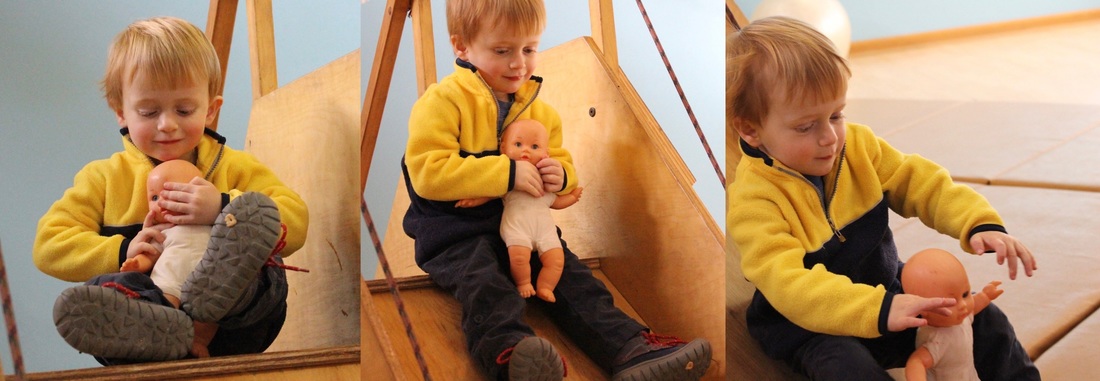How can we support children’s abilities to be caring and responsible, in order to be strong classroom community members and strong citizens of the world?
|
Many believe that the purpose of education is to inspire and support a better form of human beings.
Education should help all people live morally, ethically, peacefully, and productively together in a democratic society. If we believe this, then shouldn’t our curriculum extend beyond content areas? This is not to imply that schools should not address content. There was mathematical content, scientific content, language arts content, etc. integrated throughout this investigation. |
Literacy
|
One teacher made tiny books for the children to read to their baby dolls. The teachers predicted that reading to the dolls could offer another way for the children to care for them.
As the children’s language developed, the teachers documented the words they were saying. The books were created by pairing this newly emerging language, words we knew the children could say, with pictures of those words. This allowed the children to take full responsibility for reading to the dolls, which, we feel, can help them develop self-confidence in their ability to read at a very young age. |
Mathematics
Science
|
The children engaged in scientific exploration when they investigated reflection in the hallway mirrors with their dolls and when they tried balancing their dolls on bouncy balls.
|
Technology
Social Emotional
Equally important to content in an early childhood setting is the social emotional curriculum.
We must make time for this and pay it the same level of attention that is paid to numbers and letters.
We must make time for this and pay it the same level of attention that is paid to numbers and letters.
|
“It (a whole new mind) doesn’t mean rejecting the systemizing side of our brains. Empathy is neither a deviation from intelligence nor the single route to it. Sometimes we need detachment; many other times we need attunement. And the people who will thrive will be those who can toggle between the two. As we’ve seen again and again, the Conceptual Age requires androgynous minds." - Daniel Pink, Author, A Whole New Mind
|
"Children and adults are always absorbing a sense of what the world is like; this is ALWAYS developing. However, we are not only absorbing a sense of what the world is like, but we are creating what the world is like. Seeing the world news makes me think we need to grow in our humanity. The challenges that we face as a human species seem to be of the interpersonal nature at their core. The challenges we are facing (war, famine, racism, sexism, violence) seem to require solutions that take a certain social intelligence we are still in the beginning stages of developing as a human species. Negotiation, diplomacy, resolution, and peace need a stronger presence in our world. We can help the children with this AND the children can help us.
The children are citizens of the future, but they are also citizens of the present. Because of this, I have much hope. Thank you children, everywhere, for this hope."
The children are citizens of the future, but they are also citizens of the present. Because of this, I have much hope. Thank you children, everywhere, for this hope."
- Maureen Condon, Boulder Journey School Classroom Teacher
This documentary was created by classroom teacher Amy Dewitt, in partnership with the children, their families, and our colleagues, for the Advanced Developmentally Appropriate Curriculum course as part of the Boulder Journey School Teacher Education Program.

